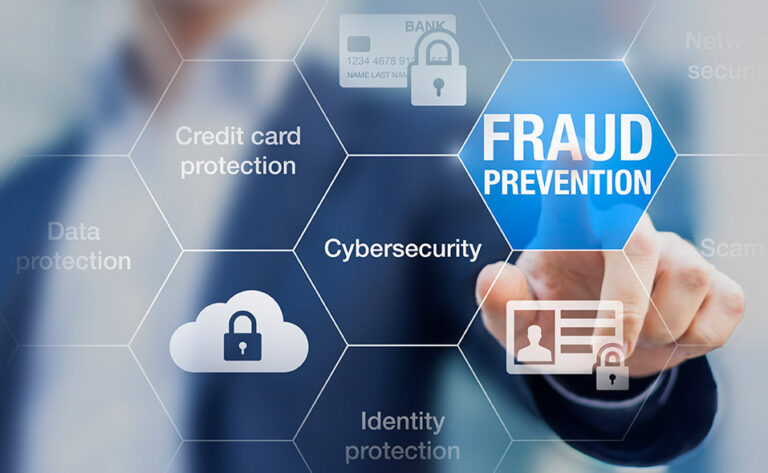
*IMPORTANT* – We will never call you to request sensitive information. If you receive a call asking for your account number, Social Security number, PIN number, or online banking credentials, hang up immediately! If you have questions about your account, please call us at 800.434.7300.
This page is not a comprehensive list of the thousands of elaborate scams that may occur on a daily basis. This is just a resource page with tips to help you keep your information safe, and a short list some of the scams we see happening frequently. To stay up to date on the latest scams, please visit https://consumer.ftc.gov/scams
Beware of Fraudulent Calls
We have been informed by some of our members about fraudulent calls from scammers using phone numbers that appear to be from Bridge Credit Union. We want to assure you that your information is safe with us. However, it is important to remain vigilant to protect your financial information.
Number Spoofing:
- Scammers may spoof our phone numbers. This means they can make it look like the call is coming from Bridge Credit Union when it is not.
Tips to Keep Your Information Safe:
- Verify the Caller: If you receive a suspicious call, hang up and call us directly at 800.434.7300. Do not use the number provided by the caller. It’s important to note that when YOU CALL US, we may ask you to confirm transactional information to confirm your identity, but we will never, call, email, or text you directly and ask you for this information
- Do Not Share Personal Information: Never give out your account details, passwords, or other sensitive information over the phone unless you are certain of the caller’s identity.
- Monitor Your Accounts Regularly: Check your accounts frequently for any unauthorized transactions and report them to us immediately.
- Use Strong Passwords: Ensure your online banking passwords are strong and unique. Avoid using easily guessed information like birthdays or simple sequences.
- Enable Account Alerts: Set up alerts for your accounts to receive notifications of any unusual activity.
Best Practices:
- Stay Informed: Keep yourself updated on the latest scams and phishing tactics.
- Secure Your Devices: Use antivirus software and keep your operating system up to date.
- Report Suspicious Activity: If you suspect fraudulent activity, report it to Bridge Credit Union immediately by calling our member services department toll free at 800.434.7300.
MEMBER SERVICE PHONE HOURS:
Monday – Thursday: 8 am – 5 pm
Friday: 8 am – 6 pm
Saturday: 9 am – 1 pm
Your security is our top priority. By staying informed and taking these precautions, you can help protect your financial information from fraud.
Debit Card Scams Requesting Your PIN#
This scam involves a caller pretending to be from your bank’s fraud department, and even references the last 4 digits of your debit card. The scammer asks about suspicious charges from stores that may be out-of state. The caller will send a verification code to the victim’s phone and will requests the victim’s PIN number in order to cancel the old card. If the person hesitates, the scammer will try and persuade the victim that the phone number they are calling from matches the one on the back of the card. If this happens to you and the scammer says they are calling from Bridge Credit Union’s fraud department, hang up immediately and call us at 800.434.7300. Remember, we will never call you to ask for your PIN number. Here are some links to articles about this scam.
Credit/Debit Card Phishing
This occurs when scammers create fake sites, and/or send fake emails or text messages to get you to reveal your debit card details. The goal is to get you to click on a fake site and input your debit card information. If you see a suspicious text, do not click on the links in the text.
- File a dispute (also called a “chargeback”) with your credit or debit card company.
- Online: Log onto your credit or debit card company’s website and go through the dispute process.
- By Phone: Call the phone number on the back of your card and tell them why you’re filing a dispute.
- Follow up with a letter to your credit or debit card company. To protect any rights you may have, follow up in writing by sending a letter to the address listed for billing disputes or errors.
- Save your records. Keep any letters, notes, or emails related to the scam — they could help prove you’re entitled to a refund if the credit or debit card company has any questions.
- Find out your rights at ftc.gov/credit.
Resources:
https://reportfraud.ftc.gov/faq/faq-search/credit%20card%20phishing
https://consumer.ftc.gov/articles/how-recognize-and-avoid-phishing-scams
Unexpected Deliveries
To avoid fake shipping notification scams:
- Don’t click on links in messages about an unexpected delivery. If you get a message about an unexpected package delivery that tells you to click on a link for some reason, don’t click.
- Contact the shipping company directly to get more information. If you think the message might be legitimate, contact the shipping company using a phone number or website you know is real. Don’t use the information in the message.
- Check your order status. If you think the message could be about something you recently ordered, go to the site where you bought the item and look up the shipping and delivery status there.
Resources:
Additional Resources:
- https://consumer.ftc.gov/scams
- https://consumer.ftc.gov/consumer-alerts
- https://consumer.ftc.gov/consumer-alerts/2024/06/got-call-about-fraud-activity-your-bank-account-it-could-be-scammer
- https://consumer.ftc.gov/consumer-alerts/2024/12/phishing-scams-can-be-hard-spot
- https://consumer.ftc.gov/articles/how-avoid-scam
What to Know About Identity Theft
Is someone using your personal or financial information to make purchases, get benefits, file taxes, or commit fraud? That’s identity theft. Visit IdentityTheft.gov to report identity theft and get a personal recovery plan. For more information about identifity theft and how to prevent it, please visit here.











